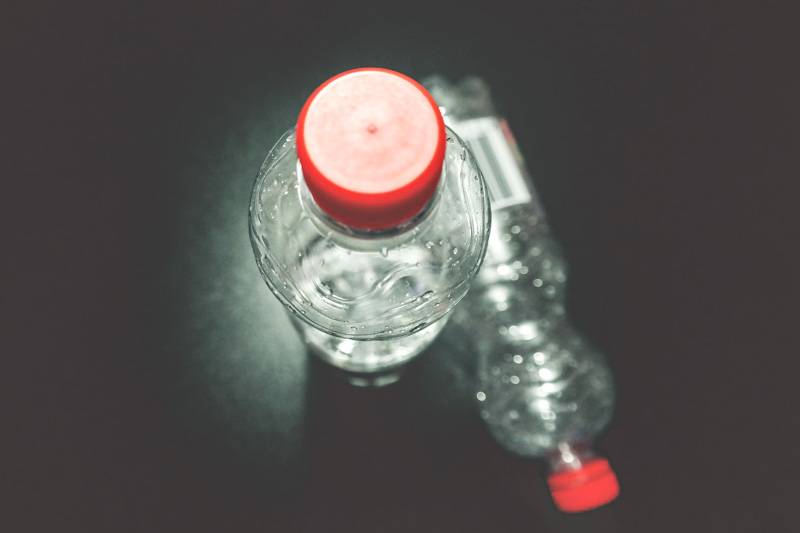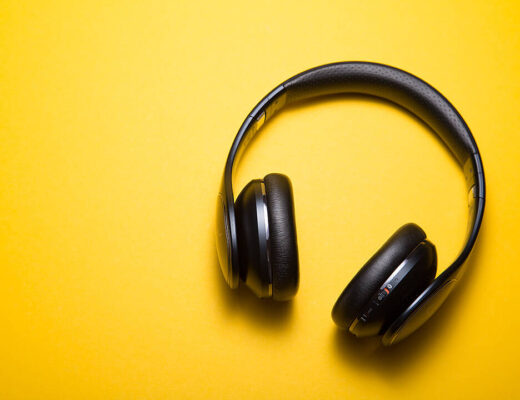How to Stay Hydrated During Exercise was first published in July 2018 and updated in March 2020.
The 16th – 22nd March is Nutrition and Hydration Week, so it seemed appropriate to update this post about how to stay hydrated during exercise. Looking after ourselves by eating properly and staying hydrated is important at the best of times. But during this crazy Coronavirus pandemic, staying fit and healthy by feeding our bodies correctly, is crucial.
Although staying hydrated is important for everybody, it’s especially important when you lead an active lifestyle. Just because the pandemic is causing chaos in other parts of your life, if you’re fit and healthy, there’s no need for it to affect your workouts.
Between 45% – 70% of our total body mass is made up of water. Which means my body is made up of approximately 26 – 41 litres of water. Although, the fancy pants scales at work tell me more accurately, that my body is made up of 59.9% of water.
That’s a lot of water.
But did you know the fluid in our body isn’t just made up of water? It also contains electrolytes (salts), which dissolve into the body and help with things like muscle function and blood acidity. These also need replacing either during or after a workout – depending on the length of the session.
How Much Water Do You Need?
If you lead an active lifestyle and workout regularly, you should be aiming to drink 1ml of water for every calorie you consume. So, if you eat 2200 calories a day, you should be aiming to drink 2.2L of water each day.
This is easier said, than done. Even though I know the importance of staying hydrated, I’m guilty of not always drinking as much as I should. And I’m not the only one.
I work at a health club where every gym member is entitled to a mini-health assessment. This includes checking things like weight, body fat, muscle mass, BMR and hydration levels to name a few. One of the most common occurrences is people falling short of their hydration levels. This is always followed up by them saying they already know they don’t drink enough.
But staying hydrated during exercise is important – especially during this crazy Coronavirus pandemic we’ve been having.
Benefits of Staying Hydrated
The human body can last more than 3 weeks without food, but going without water can cause death within a few days. Water is crucial in making the body function properly, so staying properly hydrated is important. Water helps to deliver oxygen throughout the body, helps to reduce high blood pressure, it helps to regulate body temperature and can help to reduce an increased heart rate. It also helps increase athletic performance.
Not bad, eh?
How to Stay Hydrated
You need to think about staying hydrated before, during and after your workout.
Before Exercise
Before you even think about hitting the gym or going for a run, you need to start getting yourself fully hydrated. Drink between 5-7ml of water per kg of body weight, ideally 4 hours before your workout. Then drink about half of this amount again about 15 minutes before you begin.
If you work out in a morning, drink what you can as soon as you get up. Recent studies have shown you can become fully hydrated within 45-minutes of consuming 600ml water.
During Exercise
Aim to replace around 80% of losses during your workout.
Everybody sweats different amounts and at different rates, but it’s important to replace fluid caused by sweating during your workout.
An average person can lose up to 1 litre of fluid per hour of exercise and an athlete can lose up to 3 litres. Temperature, humidity, clothing, size and level of fitness all play a part in the fluid loss process – one size doesn’t fit all! But as a rough guide, these are good figures to start with.
To get a better idea of how much fluid you lose during a workout, weigh yourself before your session and then again after an hour of exercise. Every 1kg lost is approximately equal to 1 litre of fluid.
Tips for checking your fluid loss:
- Make sure you wear the same clothing to weigh yourself in before and after your exercise session
- Urinate before you weigh in
- If you decide to consume water during your workout, make a note of how much you drink. Add the amount of fluid you lost to the amount of fluid you consumed to give you your total
- If you don’t consume any water – just weigh yourself before and after your workout
For more detailed readings, you can also search online for a fluid loss calculator. It all depends on what you’re after.
If you’re exercising for an hour or less, drinking water should be sufficient. But if you’re exercising for longer, make sure you have a sports drink on hand.
Always remember, if you’re thirsty, you’re already on your way to being dehydrated. Make sure you listen to your body and drink when you need to.
How to Stay Hydrated After Exercise
One hour or more of intense exercise will more than likely result in dehydration, so make sure you have a drink on standby to rehydrate yourself.
The sooner you can take this in, the better. If you can tolerate it, you should drink up to 500ml immediately afterwards, followed by 250ml every 15 minutes for the next 3 hours.
A drink containing electrolytes is always more effective than drinking plain water when you’re rehydrating.
Hydration Levels
Hydration is a funny old thing. It affects us more than we realise and drinking too much can be just as dangerous as not drinking enough.

Hyponatremia
Water intoxication or hyponatremia, occurs when there is an imbalance of water and sodium levels in our body. This can happen when large amounts of water are consumed very quickly, or when we don’t take in enough sodium through fluids. It’s common in endurance athletes like marathon runners.
Symptoms of hyponatremia can vary from mild to severe, including:
- Muscle weakness
- Muscle in-coordination
- Disorientation
- Seizures and coma
Dehydration
Dehydration occurs when your body loses more fluid than it takes in. This means your body doesn’t have enough fluid to carry out its normal function, and dehydration as low as 2% can affect performance.
Symptoms of dehydration include:
- Dizziness
- Low/no urine output
- Headaches
- Stomach upset
- Dark urine
- Dry/sticky mouth
- Weakness
Always have a drink handy when working out. Listen to your body, and if you start to feel thirsty – drink!






No Comments